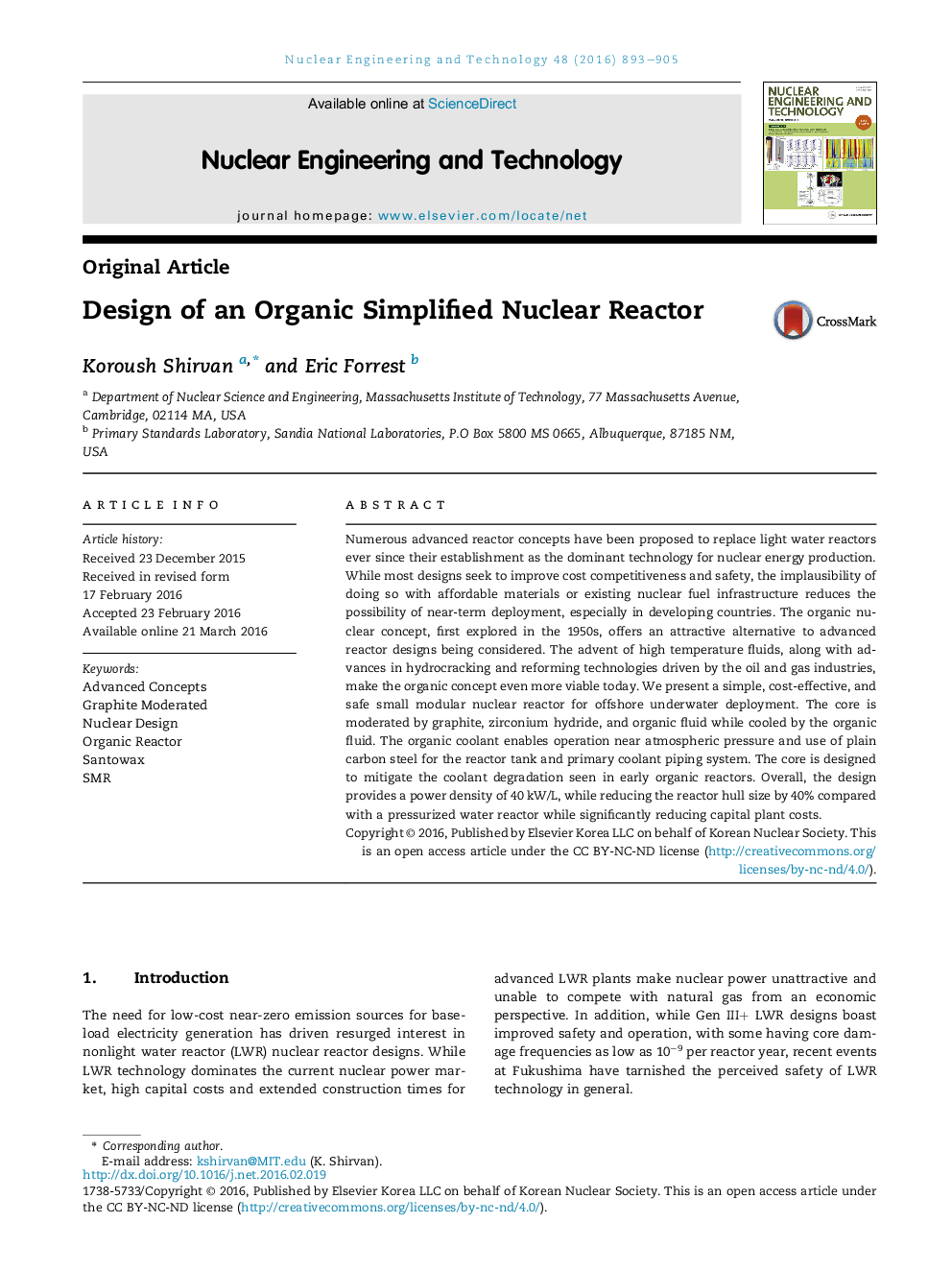| Article ID | Journal | Published Year | Pages | File Type |
|---|---|---|---|---|
| 1739830 | Nuclear Engineering and Technology | 2016 | 13 Pages |
Numerous advanced reactor concepts have been proposed to replace light water reactors ever since their establishment as the dominant technology for nuclear energy production. While most designs seek to improve cost competitiveness and safety, the implausibility of doing so with affordable materials or existing nuclear fuel infrastructure reduces the possibility of near-term deployment, especially in developing countries. The organic nuclear concept, first explored in the 1950s, offers an attractive alternative to advanced reactor designs being considered. The advent of high temperature fluids, along with advances in hydrocracking and reforming technologies driven by the oil and gas industries, make the organic concept even more viable today. We present a simple, cost-effective, and safe small modular nuclear reactor for offshore underwater deployment. The core is moderated by graphite, zirconium hydride, and organic fluid while cooled by the organic fluid. The organic coolant enables operation near atmospheric pressure and use of plain carbon steel for the reactor tank and primary coolant piping system. The core is designed to mitigate the coolant degradation seen in early organic reactors. Overall, the design provides a power density of 40 kW/L, while reducing the reactor hull size by 40% compared with a pressurized water reactor while significantly reducing capital plant costs.
